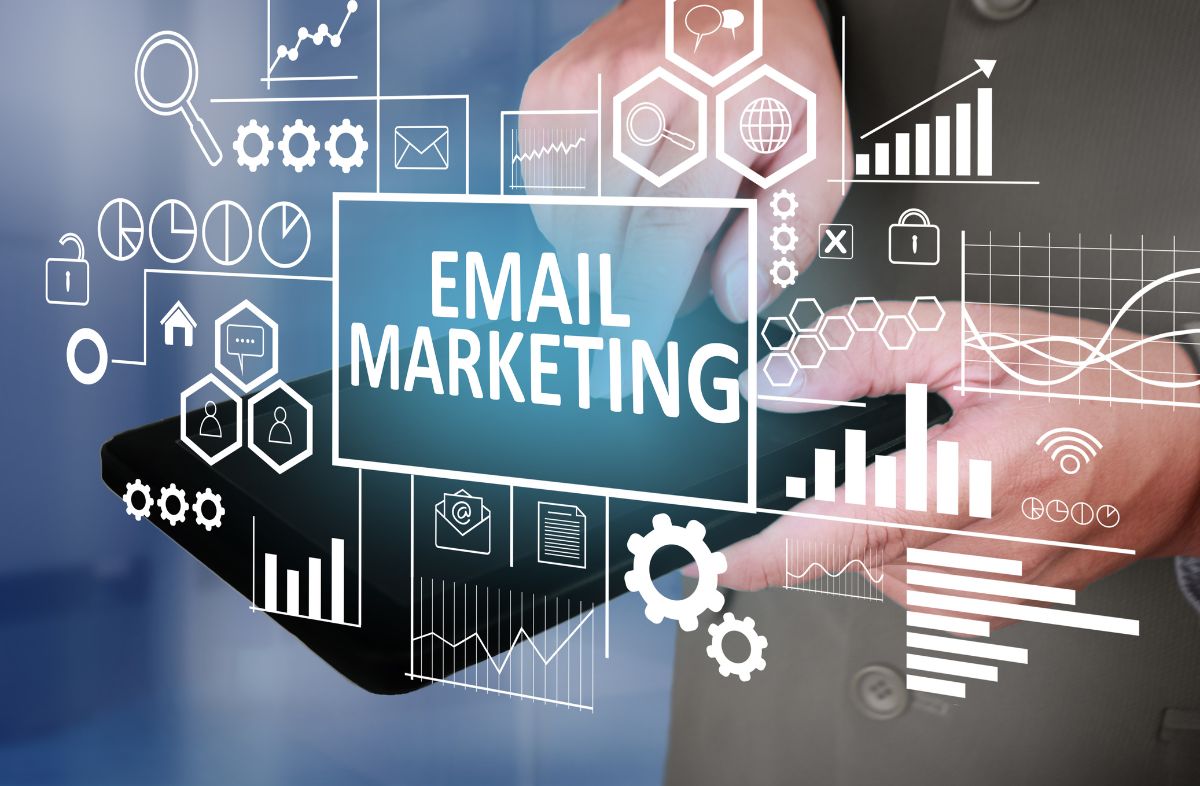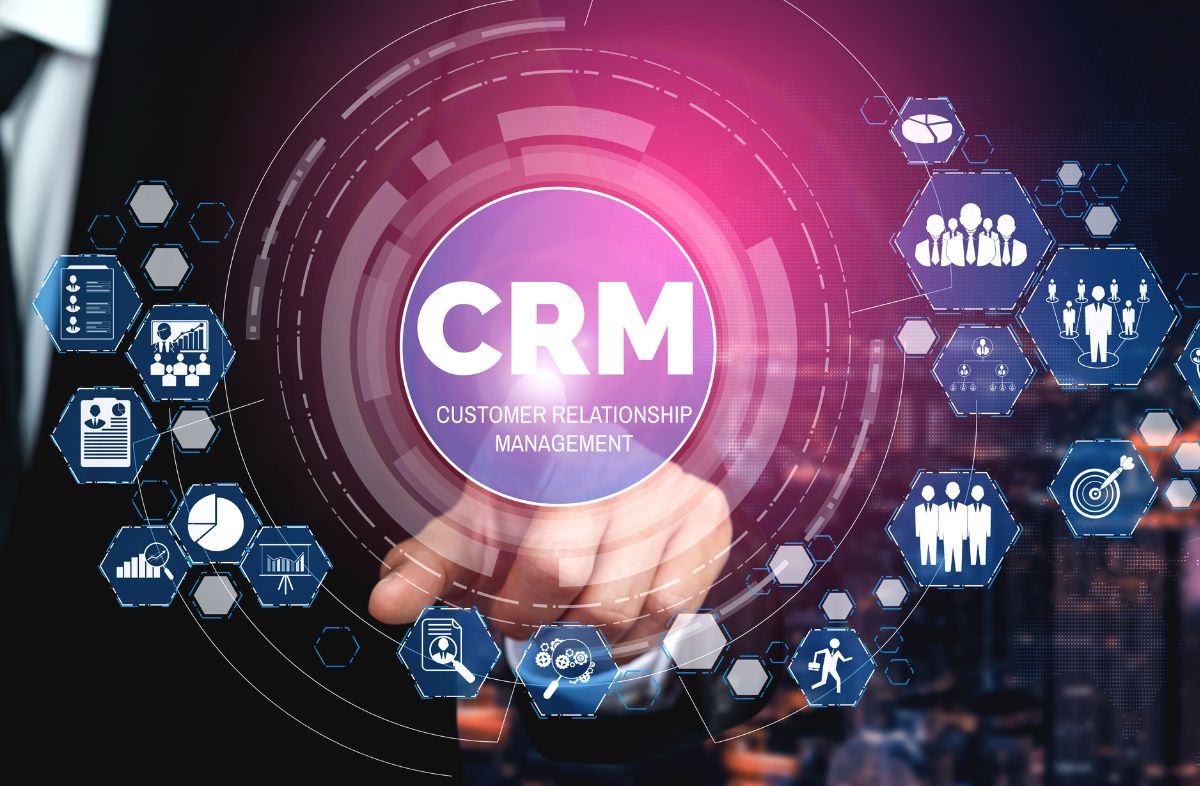What is Email Marketing Software for eCommerce
In today’s digital landscape, email marketing has emerged as a vital tool for eCommerce businesses to reach and engage with their target audience. With the right email marketing software, businesses can create personalized campaigns, automate processes, and achieve higher conversion rates. This article explores the best email marketing software options available for eCommerce businesses and provides insights into their key features, benefits, and considerations for selecting the most suitable solution.
Effective email marketing is a game-changer for eCommerce businesses. By leveraging the power of the best email marketing software, businesses can engage with their target audience, drive conversions, and boost customer loyalty. Assess your business needs, explore the features and benefits of various software options, and choose a solution that aligns with your goals and objectives. Implementing email marketing strategies and maximizing the potential of these software tools will unlock success and propel your eCommerce business to new heights.
Key Features to Look for in the Email Marketing Software for eCommerce
To effectively utilize email marketing for eCommerce success, it is crucial to choose a software solution that offers specific features tailored to the needs of online businesses. Here are some key features to consider:
1. Advanced Segmentation and Targeting
The ability to segment subscribers based on demographics, behaviors, and purchase history allows eCommerce businesses to deliver highly targeted and relevant emails, leading to increased engagement and conversions.
2. Automation and Workflows
Email marketing software should offer robust automation capabilities, enabling businesses to set up automated email sequences triggered by specific actions or events. This streamlines marketing efforts and enhances customer experiences.
3. Personalization and Dynamic Content
Dynamic content features allow businesses to create personalized email campaigns that resonate with individual subscribers. By including personalized product recommendations, tailored offers, and customized content, businesses can drive higher engagement and sales.
4. Integration with eCommerce Platforms
Seamless integration with popular eCommerce platforms, such as Shopify, WooCommerce, or Magento, is essential for synchronizing customer data, tracking purchase behavior, and delivering personalized email campaigns based on real-time data.
5. Analytics and Reporting
Comprehensive analytics and reporting functionalities help businesses track the performance of their email campaigns. Metrics such as open rates, click-through rates, conversion rates, and revenue attribution provide valuable insights for optimizing future campaigns.
6. Responsive Email Design
With the increasing use of mobile devices, email marketing software should offer responsive email templates to ensure optimal display and user experience across different screen sizes and devices.
7. Deliverability and Spam Testing
Reliable email deliverability and built-in spam testing tools help businesses ensure their emails reach subscribers’ inboxes instead of getting caught in spam filters, maximizing the chances of engagement.
8. Customer Support and Training
Responsive customer support and comprehensive training resources are crucial for businesses to make the most of their email marketing software. Look for software providers that offer reliable support channels and educational materials.
Choosing the Right Email Marketing Software for Your eCommerce Business
Selecting the most suitable email marketing software for your eCommerce business requires careful consideration of various factors. Here are some key aspects to evaluate:
Assessing Your Business Needs
Identify your specific email marketing requirements, considering factors such as the size of your subscriber list, the complexity of your campaigns, and the desired level of automation. This will help you determine which software aligns best with your needs.
Scalability and Pricing Considerations
Evaluate the scalability of the software, considering your future growth projections. Additionally, compare pricing plans and features offered by different software providers to find an option that fits within your budget while providing the necessary functionalities.
Integration with eCommerce Platforms
Ensure that the email marketing software integrates seamlessly with your chosen eCommerce platform. This integration will enable the exchange of data and facilitate personalized email campaigns based on customer behavior and purchase history.
Automation and Personalization Capabilities
Review the automation and personalization features offered by each software option. Look for intuitive workflows, dynamic content capabilities, and the ability to set up triggered emails based on customer actions to maximize engagement and conversions.
The Best 20
1. Mailchimp
Mailchimp is a popular and user-friendly email marketing software that offers a wide range of features for eCommerce businesses. It allows you to create and automate email campaigns, segment your audience, and track the performance of your emails. With its drag-and-drop editor, you can easily design visually appealing emails without any coding knowledge. Mailchimp also integrates with various eCommerce platforms, making it seamless to sync your customer data and send personalized emails.
2. Sendinblue
Sendinblue is an all-in-one marketing platform that provides email marketing, SMS marketing, and live chat services. With its intuitive interface, you can create engaging email campaigns, segment your audience, and track the results. Sendinblue also offers marketing automation capabilities to send targeted messages based on user behavior. It integrates with popular eCommerce platforms, allowing you to leverage customer data for more personalized emails.
3. Constant Contact
Constant Contact is a comprehensive email marketing platform that offers a range of features for eCommerce businesses. It provides customizable email templates, contact list management, and automation tools to streamline your email marketing efforts. With its eCommerce integrations, you can easily import product information and send targeted emails to drive sales. Constant Contact also provides detailed reporting and analytics to help you track the success of your campaigns.
4. GetResponse
GetResponse is a powerful email marketing platform that offers a variety of features for eCommerce businesses. It provides a drag-and-drop email editor, pre-designed templates, and automation workflows to create engaging campaigns. GetResponse also includes advanced segmentation options and A/B testing capabilities to optimize your email marketing strategy. With its eCommerce integrations, you can sync your store data and send personalized product recommendations.
5. ActiveCampaign
ActiveCampaign is a robust email marketing and automation platform designed for eCommerce businesses. It offers a visual automation builder, behavioral tracking, and advanced segmentation options to send targeted emails based on customer actions. ActiveCampaign also includes features like dynamic content, split testing, and CRM integration to enhance your email marketing efforts. With its deep eCommerce integrations, you can track customer purchases and send personalized offers.
6. Campaign Monitor
Campaign Monitor is a user-friendly email marketing software that provides a range of features for eCommerce businesses. It offers a drag-and-drop email builder, pre-built templates, and personalization options to create visually appealing campaigns. Campaign Monitor also provides advanced analytics and reporting to track the performance of your emails. With its eCommerce integrations, you can leverage customer data to send targeted and automated emails.
7. AWeber
AWeber is an email marketing platform that caters to small and medium-sized eCommerce businesses. It offers an easy-to-use drag-and-drop email editor, automation workflows, and audience segmentation to create personalized email campaigns. AWeber also provides a wide range of integrations with eCommerce platforms, allowing you to sync customer data and automate your marketing efforts.
8. ConvertKit
ConvertKit is an email marketing software specifically designed for creators, bloggers, and small businesses. It offers features like email automation, customizable landing pages, and audience segmentation to engage your subscribers effectively. ConvertKit also provides eCommerce integrations to track customer behavior and send targeted emails.
9. Benchmark Email
Benchmark Email is an email marketing platform that focuses on simplicity and ease of use. It offers a drag-and-drop editor, automation workflows, and personalization options to create effective email campaigns. Benchmark Email also includes eCommerce integrations, allowing you to import product information and send targeted emails to drive conversions.
10. SendPulse
SendPulse is a multi-channel marketing platform that provides email marketing, SMS marketing, and web push notifications. It offers an intuitive email editor, automation tools, and segmentation options to create personalized email campaigns. SendPulse also includes AI-powered features like predictive analytics and personalization to optimize your email marketing strategy.
11. Drip
Drip is an email marketing platform known for its powerful automation features and personalization capabilities. It enables eCommerce businesses to create complex automation workflows based on customer behavior and preferences. With its visual builder, you can design targeted email campaigns and track their performance. Drip also provides integrations with popular eCommerce platforms to help you deliver personalized product recommendations and increase conversions.
12. Zoho Campaigns
Zoho Campaigns is an email marketing software that offers a comprehensive set of tools for eCommerce businesses. It provides customizable email templates, automation workflows, and A/B testing features to optimize your campaigns. With its integration with Zoho CRM and other eCommerce platforms, you can effectively segment your audience and send personalized emails based on customer data.
13. MailerLite
MailerLite is a user-friendly email marketing platform suitable for small to medium-sized eCommerce businesses. It offers an intuitive drag-and-drop editor, automation features, and audience segmentation options. MailerLite also provides eCommerce integrations to help you send targeted product recommendations and track customer purchases. With its affordable pricing plans, it is a popular choice for businesses looking for cost-effective email marketing solutions.
14. Klaviyo
Klaviyo is a powerful email marketing and automation platform specifically tailored for eCommerce businesses. It enables you to create highly personalized and targeted email campaigns based on customer behavior and preferences. With its advanced segmentation and analytics features, you can track the success of your campaigns and make data-driven decisions. Klaviyo also integrates with popular eCommerce platforms, allowing you to leverage customer data to send relevant emails.
15. Moosend
Moosend is an all-in-one email marketing platform that offers features for eCommerce businesses. It provides a drag-and-drop editor, automation workflows, and advanced reporting to help you create and track effective email campaigns. Moosend also offers eCommerce integrations, allowing you to sync your store data and send personalized product recommendations to your customers.
16. Mailjet
Mailjet is an email marketing software that focuses on delivering transactional and marketing emails for eCommerce businesses. It offers a user-friendly interface, email template builder, and automation features to create and send personalized campaigns. Mailjet provides robust deliverability and scalability, making it suitable for businesses of all sizes.
17. SendGrid
SendGrid is a cloud-based email delivery and marketing platform that provides scalable solutions for eCommerce businesses. It offers features such as email automation, campaign analytics, and A/B testing to optimize your email marketing efforts. With its reliable delivery infrastructure, SendGrid ensures that your emails reach your customers’ inboxes.
18. Emma
Emma is an email marketing platform that focuses on creating targeted and personalized campaigns for eCommerce businesses. It provides a range of features including segmentation, automation, and analytics to help you optimize your email marketing strategy. Emma also offers integrations with popular eCommerce platforms, enabling you to send personalized product recommendations and increase customer engagement.
19. Keap (formerly Infusionsoft)
Keap is an all-in-one CRM and marketing automation platform designed for small businesses, including eCommerce businesses. It offers features such as contact management, email marketing, and sales automation to help you streamline your customer communication and sales processes. Keap provides eCommerce integrations to manage your customer data and deliver targeted email campaigns.
20. Autopilot
Autopilot is a visual marketing automation and email marketing platform suitable for eCommerce businesses. It offers a visual canvas to build automation journeys based on customer interactions and behaviors. Autopilot integrates with eCommerce platforms, enabling you to track and respond to customer actions with personalized email campaigns.
Implementing Email Marketing Strategies for eCommerce Success
Once you have chosen the right email marketing software for your eCommerce business, it’s time to implement effective strategies to drive success. Here are some key steps to consider:
Building a Targeted Email List
Focus on growing a high-quality email list by implementing lead generation strategies such as website opt-ins, gated content, and social media promotions. Ensure that your subscribers have explicitly consented to receive emails from your business.
Creating Engaging Email Campaigns
Craft compelling email campaigns that resonate with your target audience. Use persuasive copy, visually appealing designs, and personalized content to capture attention, generate interest, and drive conversions.
A/B Testing and Optimization
Continuously experiment and optimize your email campaigns through A/B testing. Test different subject lines, email layouts, calls to action, and offers to identify the most effective strategies for your audience.
Analyzing Performance Metrics
Regularly track and analyze key performance metrics to measure the success of your email marketing efforts. Pay attention to open rates, click-through rates, conversion rates, revenue attribution, and other relevant metrics to gain insights for further optimization.
Maximizing ROI with Email Marketing Software for eCommerce
By leveraging the full potential of email marketing software, eCommerce businesses can enhance their return on investment (ROI) and drive business growth. Here are some specific areas where email marketing software can make a significant impact:
Increasing Conversion Rates
Through personalized and targeted email campaigns, businesses can nurture leads and guide them through the conversion funnel, resulting in increased sales and revenue.
Reducing Cart Abandonment
Email marketing software allows businesses to set up automated cart abandonment recovery campaigns, reminding customers about their abandoned carts and incentivizing them to complete their purchases.
Customer Retention and Loyalty
Engaging with existing customers through email marketing helps foster loyalty and strengthen customer relationships. Sending personalized recommendations, exclusive offers, and relevant content can encourage repeat purchases and long-term loyalty.
Upselling and Cross-selling Opportunities
Email marketing provides opportunities to upsell and cross-sell to existing customers. By analyzing purchase history and customer behavior, businesses can recommend complementary products or upgrades, increasing the average order value.
Best Practices for Email Marketing in eCommerce
To leverage email marketing effectively in eCommerce, consider the following best practices:
- Build a Permission-Based Email List: Focus on growing an opt-in email list of subscribers who have willingly provided their consent to receive communications from your brand.
- Segment Your Audience: Divide your email list into segments based on demographics, purchase history, browsing behavior, or engagement levels to deliver personalized content.
- Personalization and Dynamic Content: Leverage customer data to personalize your emails, addressing subscribers by name and tailoring content based on their preferences and behaviors.
- Compelling Subject Lines: Craft subject lines that grab attention and entice subscribers to open your emails, but ensure they accurately represent the email’s content.
- Engaging Email Content: Create visually appealing emails with concise, engaging content that drives action, whether it’s making a purchase, reading a blog post, or attending an event.
- Call to Action: Clearly define the action you want subscribers to take and include a prominent and persuasive call to action (CTA) in your emails.
- Testing and Optimization: Continuously test different elements of your email campaigns, such as subject lines, content, CTAs, and designs, to optimize results and improve performance.
- Monitor and Analyze Results: Regularly review email marketing metrics like open rates, click-through rates, conversion rates, and unsubscribe rates to identify areas for improvement.
By following these best practices, you can create compelling, targeted email campaigns that resonate with your audience, drive engagement, and generate positive results for your eCommerce business
How Email Marketing Software Boosts Conversion Rates in eCommerce
Email marketing software plays a significant role in boosting conversion rates for eCommerce businesses. Here’s how it can help:
- Targeted Communication: By segmenting your audience and delivering personalized messages based on their preferences, purchase history, or browsing behavior, email marketing software helps increase the relevance of your communications, driving higher conversion rates.
- Automated Workflows: With email marketing software, you can set up automated workflows triggered by specific customer actions, such as abandoned carts or completed purchases. These automated workflows nurture leads, re-engage customers, and drive them toward conversion.
- Personalized Recommendations: Email marketing software can leverage data from your eCommerce platform to provide personalized product recommendations, cross-sell and upsell offers, and relevant content, enticing customers to make additional purchases.
- Time-Sensitive Offers: By leveraging automation features, email marketing software allows you to send time-sensitive offers, limited-time discounts, or flash sale notifications, creating a sense of urgency and encouraging immediate action.
- Cart Recovery Emails: Abandoned cart recovery emails sent through email marketing software remind customers of the products they left behind and entice them to complete their purchase, significantly boosting conversion rates.
With its targeted approach, automation capabilities, and personalized communication, email marketing software helps eCommerce businesses optimize conversion rates and maximize revenue..
FAQs about Email Marketing Software for eCommerce
FAQ1: What is email marketing software for eCommerce?
Email marketing software for eCommerce is a specialized tool that helps businesses automate and optimize their email marketing campaigns. It enables businesses to send targeted, personalized emails to their subscribers, driving engagement, conversions, and revenue.
FAQ2: How does email marketing software benefit eCommerce businesses?
Email marketing software offers numerous benefits for eCommerce businesses, including increased customer engagement, improved conversion rates, enhanced customer loyalty, and automated workflows that save time and effort.
FAQ3: Can I use email marketing software with my existing eCommerce platform?
Most email marketing software solutions offer integrations with popular eCommerce platforms, allowing seamless data synchronization and personalized email campaigns based on customer behavior and purchase history.
FAQ4: Are there any free email marketing software options for eCommerce?
While some email marketing software providers offer free plans with limited features and subscriber limits, it’s often recommended to invest in a paid solution that provides more robust features and scalability for growing businesses.
FAQ5: What are some recommended integrations for email marketing software and eCommerce platforms?
Popular integrations for email marketing software and eCommerce platforms include Shopify, WooCommerce, Magento, BigCommerce, and Squarespace. Check the compatibility of the software with your chosen eCommerce platform before making a decision.
FAQ6: How can email marketing software help reduce cart abandonment?
Email marketing software enables businesses to set up automated cart abandonment recovery campaigns. These campaigns send personalized emails to customers who have left items in their carts, encouraging them to return and complete their purchases.
FAQ7: What metrics should I track to measure the success of my email marketing campaigns?
Key metrics to track include open rates, click-through rates, conversion rates, revenue attribution, unsubscribe rates, and list growth rate. Analyzing these metrics provides insights into the effectiveness of your campaigns and helps you optimize future strategies.
FAQ8: Can I automate my email marketing campaigns with these software options?
Yes, email marketing software offers robust automation capabilities, allowing businesses to set up triggered email sequences, welcome series, cart abandonment recovery campaigns, and more. Automation saves time and ensures timely and relevant communication with subscribers.
FAQ9: How can I personalize my email campaigns for better engagement?
Email marketing software provides various personalization options, such as dynamic content based on subscriber data, personalized subject lines, and recommendations based on purchase history. Leveraging these features helps create more relevant and engaging campaigns.
FAQ10: Are there any email marketing software solutions that offer mobile optimization?
Yes, most modern email marketing software solutions offer responsive email templates that ensure optimal display and user experience on mobile devices. Mobile optimization is crucial, considering the increasing number of users accessing emails through smartphones and tablets.





